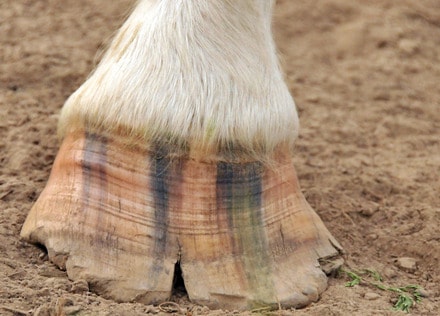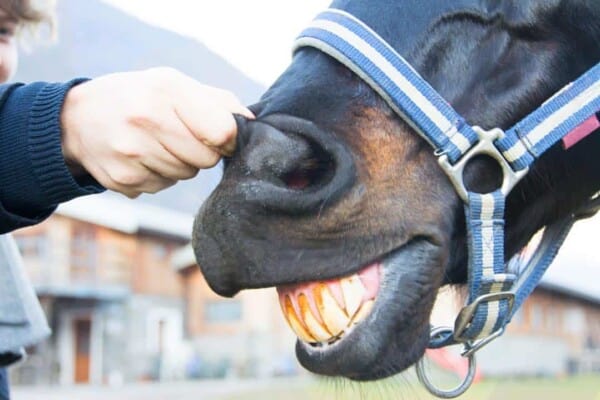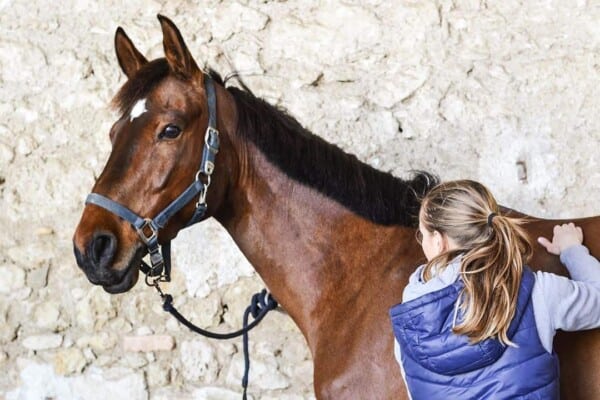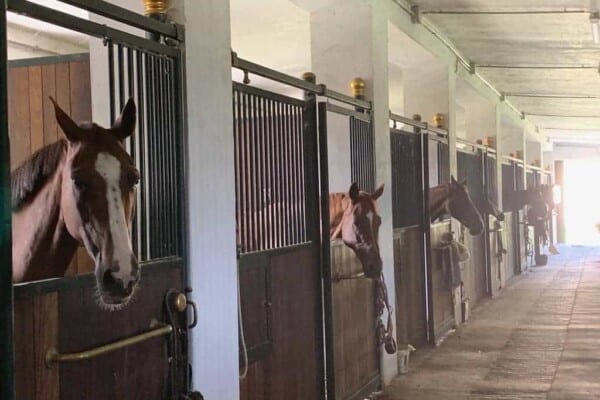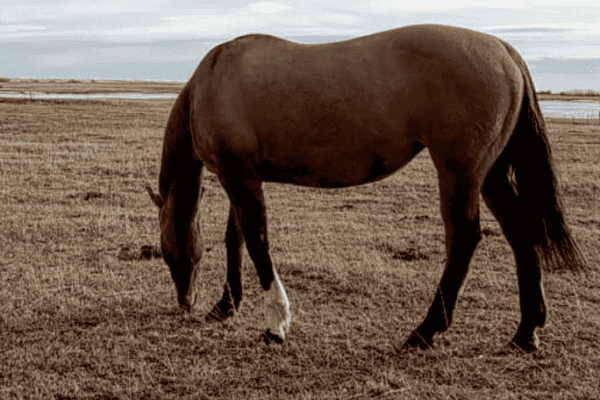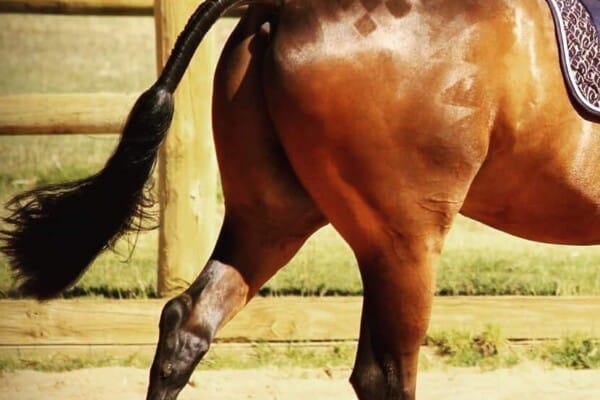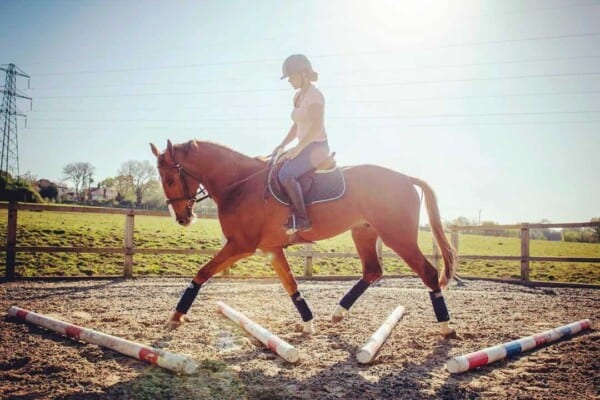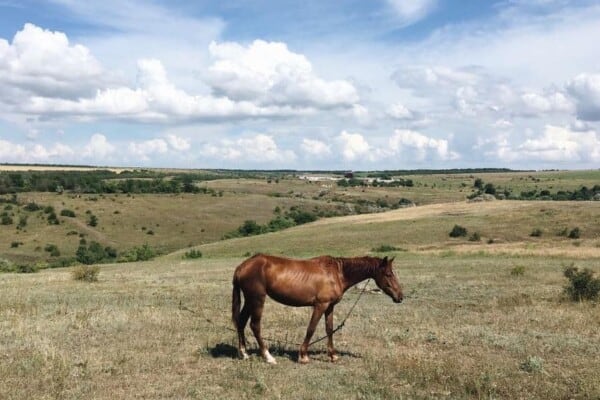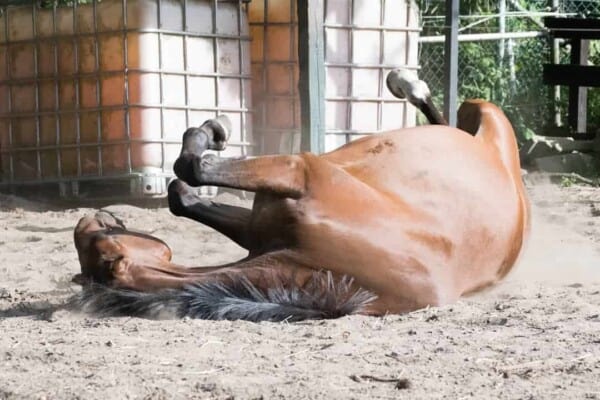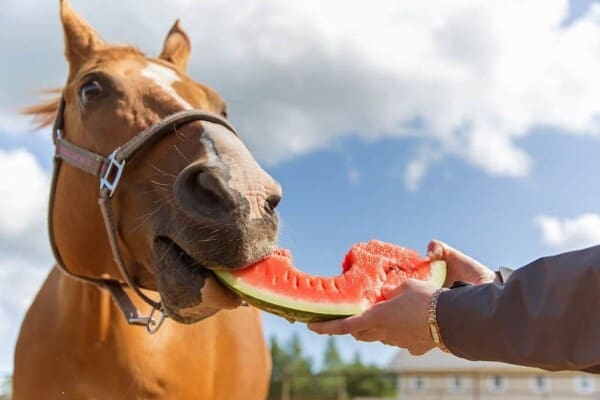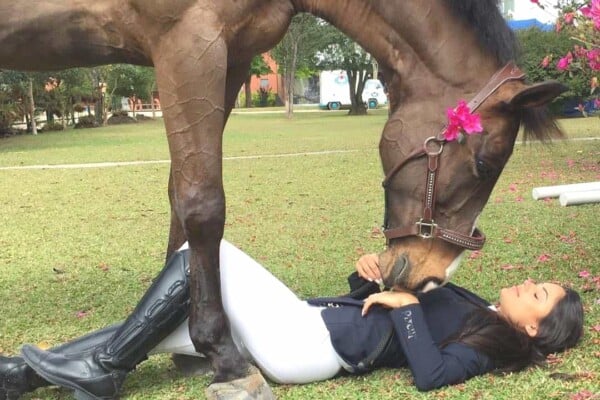Many horses will experience cracked hooves in their lifetime. Most cracks will heal themselves and present no real risk to the horse. However some cracks can become more serious and can result in a chronically unbalanced hoof and can even lead to lameness.
There are many reasons why a horses hooves can crack. Genetic, environment, routine, and diet all play a significant factor. However there are many ways we can avoid cracks and treat them before they become more serious. Here are some simple hoof health tips to add to your own horse care regime.
1. Pick out your horse’s feet regularly
This may seem incredibly obvious but is still the most important thing that you can do to ensure healthy hooves. Many riders think that checking a horses hooves is the responsibility of their farrier but this should not be the case. After riding you should always check your horses feet for stones or small objects that may be lodged in their hooves. When you clean your horses feet take the time to remove packed dirt and grit that may be lodged. Ensure you have the right tools such as a good hoof pick and stiff brush.
Regularly picking up your horses feet will also allow you to spot cracks, abscesses, and other conditions that may require treatment. Regularly wiggling the shoe will also alert you to loose shoes that need replacing. Early intervention in horse feet conditions is essential to avoid more serious issues.
2. Schedule regular farrier visits
Regular visits from the farrier are important to ensure your horses feet are properly trimmed and kept in balance. If a hoof wall gets too long it will bend and crack.
Even if your horse is barefoot it is important to have a regular farrier visit to ensure their health. A farrier will be better able to see potential problems that you might miss such as small abscesses and punctures. The frequency of farrier visits should be agreed with your farrier but in general 6-8 weeks is good practice.
3. Avoid turning out in wet muddy ground
If a horse is constantly standing in wet muddy conditions then there is an increased risk of developing cracked hooves or thrush.
Muddy ground often results in suction of the feet which can loosen shoes or shake them off completely. Thick muddy feet are also harder to pick up and it can be harder to spot cracks and other problems with the feet if covered in thick mud.
4. Add a supplement, if necessary
Diet is important for good hoof health. Some horses breeds are more genetically predisposed to cracked hooves and may require a supplement. Horse hoof supplements typically contain Biotin copper, zinc and other amino acids. A good horse hoof supplement may also help improve other aspects of a horse health such as the health of their hair.
Always consult an equine nutritionist or veterinarian for advice before introducing a new supplement.
5. Avoid the wet/dry cycle
When a hoof gets wet it softens up and swells. When the hoof gets dry it will stiffen and contract. This is similar to the way wood swells and contracts in wet and dry conditions. This frequent swelling and contracting can loosen a horses shoes and can cause cracks. To avoid this keep an eye on the weather and try to avoid hoof exposure to a frequently alternating wet and dry cycle. This is especially important if a horse already has badly cracked hooves.
6. Keep them healthy
Finally, keeping horses in good overall health makes a horse less likely to develop cracked hooves. Ensuring a horse stays at a healthy weight, is turned out regularly, and has a healthy diet is essential if you are to maintain healthy hooves.

